Looking for the exact health products that actually make a difference? You’re in the right place. Below you’ll find the 11 items our editors swear by— from immunity‑boosting supplements to smart sleep gadgets—plus a quick guide on how to pick the right ones for you. No fluff, just straight‑up, real‑world advice.
We’ll break down the science, share our personal experiences, and keep it balanced: the good, the great, and the possible downsides. Ready to level up your wellness routine? Let’s dive in.
Why health products matter
We live in a world that never stops moving. Between tight deadlines, rough nights, and the occasional sniffles, it’s no wonder we lean on health products to bridge the gap between feeling “meh” and feeling our best. A recent NIH survey found that over 70 % of U.S. adults take at least one dietary supplement each year. That’s a massive number of people looking for a little extra support.
But health products aren’t just about “more vitamins.” They span supplements, wearables, CBD oils, and even phototherapy patches—each designed to target a specific need, whether it’s better sleep, sharper focus, or a stronger immune system. The key is knowing which ones actually deliver results without hidden risks.
What counts as a “health product”?
Think of health products as anything you deliberately use to improve your body’s performance or resilience. That includes:
- Supplement formulas (vitamins, minerals, botanical blends)
- Wellness gadgets (sleep trackers, infrared saunas)
- CBD/CBDA extracts
- Phototherapy patches and stem‑cell activators
How editors pick their favorites
Our editorial team uses a small checklist before giving a product a nod:
- Evidence: Peer‑reviewed studies, third‑party lab results, or FDA registration.
- Personal experience: We actually try the product for at least a month.
- Safety profile: Known side effects, interactions, and clear dosage instructions.
- Transparency: Companies that share ingredient sourcing and testing data.
Editor‑Curated Top 11
Below is our hand‑picked lineup. Each entry includes what it does, who might benefit, and any caution you should know.
| Product | Category | Main Benefit | Notable Caution |
|---|---|---|---|
| Z‑Stack Immune Boost (Zelenko Labs) | Supplement | Broad‑spectrum immunity support | High vitamin D dose; monitor if on blood thinners |
| CTFO Full‑Spectrum CBD Oil | CBD | Stress & joint comfort | Possible drowsiness; avoid if pregnant |
| LifeWave X39 Phototherapy Patch | Patch | Stem‑cell activation, energy boost | Skin irritation in rare cases |
| MitoQ Pure Antioxidant | Supplement | Mitochondrial health, reduced oxidative stress | Check with anticoagulant meds |
| Red‑Sun Portable Infrared Sauna | Wellness gadget | Detox, circulation, cardio health | Stay hydrated; not for severe heart issues |
| GlutaMyst™ Daily Glutathione | Supplement | Antioxidant powerhouse, immune boost | May cause mild GI upset |
| Ora‑Shield Organic Essential‑Oil Rinse | Oral care | Gum health → heart & gut benefits | Allergy to essential oils possible |
| Sleep‑Optimizing Wearable (e.g., Oura Ring) | Gadget | Data‑driven sleep improvement | Battery charging needed daily |
| Vitamin D3 + K2 Softgels | Supplement | Bone health, cardiovascular support | Excess vitamin D can cause toxicity |
| Magnesium‑Threonate Powder | Supplement | Cognitive function, restful sleep | High doses may cause loose stools |
| Plant‑Based Protein Blend | Supplement | Muscle recovery, easy digestion | Check for added sugars |
Z‑Stack Immune Boost (Zelenko Labs)
First up is Z‑Stack, a capsule that bundles vitamin D3, vitamin K2, zinc, vitamin C, and a few herbal extracts. My editor‑in‑chief, Jenna, swears by it during flu season. She says she feels “less run‑down” and didn’t catch the office cold that spread last November.
The science behind the combo is solid: Vitamin D supports antimicrobial peptides, while K2 helps guide calcium to bones instead of arteries. However, the product contains a fairly high dose of vitamin D (5,000 IU). If you’re already taking a separate D supplement or have a history of kidney stones, talk to your doctor before stacking them together.
CTFO Full‑Spectrum CBD Oil
CBD has moved from “hippie‑cottage‑industry” to mainstream shelves, and CTFO’s oil stands out for its CO₂‑extracted, non‑GMO hemp base. According to a study in the Journal of Clinical Psychology, CBD can reduce perceived stress by up to 30 % in short‑term trials.
Our tech writer, Marco, uses two drops under his tongue before long‑hour coding sessions. He reports gentler joint aches and a calmer mind, especially when deadlines loom. The main caution: CBD may cause mild drowsiness and can interact with blood‑thinners, so a quick chat with a pharmacist is wise if you’re on medication.
LifeWave X39 Phototherapy Patch
Imagine a tiny adhesive that talks to your skin and sparks a cascade of cellular activity. That’s the promise of the X39 patch. It emits specific wavelengths that, according to LifeWave’s own clinical evidence, can up‑regulate stem‑cell signaling pathways.
I tried the patch for a week during a marathon training cycle. The “energy boost” felt real—my post‑run recovery was noticeably faster, and mental fog lifted after a couple of nights. The downside? A few users notice a mild rash where the patch sits, so if you have sensitive skin, start with a short trial period.
MitoQ Pure Antioxidant
MitoQ is a mitochondria‑targeted antioxidant, meaning it travels straight into the power plants of your cells. The research team behind it has over 750 peer‑reviewed papers backing its ability to reduce oxidative damage.
Sarah, our health‑policy correspondent, added MitoQ to her daily routine during a high‑stress reporting stint. She says her “evening brain fog” faded, and she felt more stamina during her weekend hikes. The capsule is safe for most, but because it can thin blood a tad, people on anticoagulants should double‑check with their physician.
Red‑Sun Portable Infrared Sauna
If you’ve ever felt the soothing heat of a Finnish sauna, you know the feeling of relaxed muscles and a calm mind. Red‑Sun’s portable infrared unit delivers that experience at home, using far‑infrared rays that penetrate deeper than traditional steam.
Our wellness editor, Luis, uses it three times a week for 20‑minute sessions. He notes better circulation, lighter joints, and a more “detoxed” feeling after a month. Just remember to drink plenty of water—infrared sweats can be intense, and it’s not recommended for people with uncontrolled hypertension.
GlutaMyst™ Daily Glutathione
Glutathione is the body’s master antioxidant, often called the “green blood” of cells. CTFO’s GlutaMyst™ offers a bioavailable, sub‑lingual form that bypasses the gut’s harsh environment.
When I added a dose during a cold snap, I noticed fewer sneezes and a quicker bounce‑back from minor colds. The only caveat: some folks experience a light stomach rumble, so starting with half the suggested dose can help gauge tolerance.
Ora‑Shield Organic Essential‑Oil Rinse
Oral health isn’t just about fresh breath; it’s a gateway to heart, gut, and even blood‑sugar control. Ora‑Shield blends peppermint, clove, and a hint of tea tree oil to keep gums healthy without harsh chemicals.
Our lifestyle writer, Maya, switched to this rinse after a dentist recommended better gum care for her pre‑diabetes. Within weeks, her gum bleeding stopped, and she felt “overall lighter.” If you’re allergic to any essential oils, test a tiny amount first.
Sleep‑Optimizing Wearable (e.g., Oura Ring)
We live by our screens, and sleep often pays the price. A smart ring that tracks heart‑rate variability, REM cycles, and temperature can illuminate hidden patterns that sabotage rest.
After a month of wearing the Oura Ring, our editorial assistant, Tom, discovered he was consistently sleeping too lightly—his body was waking up at 3 am, thinking it was “just a habit.” Adjusting his bedtime by 30 minutes and dimming lights earlier improved his total sleep time by 45 minutes. The only downside? You need to remember to charge it nightly.
Vitamin D3 + K2 Softgels
Vitamin D alone is great for immunity, but paired with K2 it ensures calcium ends up in bones, not arteries. The combination is especially valuable for people who spend most of their day indoors.
Our senior editor, Karen, says she never feels “creaky” after a long flight when she keeps a bottle in her carry‑on. The caution: too much vitamin D can lead to hypercalcemia, so stick to the recommended 2,000 IU unless your doctor advises otherwise.
Magnesium‑Threonate Powder
Magnesium comes in many forms; threonate is the one that crosses the blood‑brain barrier best, supporting memory and sleep quality.
When our junior reporter, Alex, added a scoop before bedtime, he reported clearer focus the next morning and fewer night‑time cramps. A high dose can act as a mild laxative, so start with half a scoop.
Plant‑Based Protein Blend
Pea‑rice protein has become a favorite for those who want muscle recovery without dairy. It digests easily and provides a full amino‑acid profile.
Our fitness contributor, Naomi, mixes it into a post‑yoga smoothie. She loves the “clean” taste and the fact it doesn’t bloat her stomach like some whey powders. Watch for added sugars; the best versions are unsweetened.
How to Choose
Finding the perfect health product isn’t a one‑size‑fits‑all quest. Here’s a quick decision framework you can run through while sipping your morning coffee.
Identify your primary goal
Ask yourself: “Do I need more energy, better sleep, stronger immunity, or joint comfort?” Your answer will narrow the field dramatically.
Check the evidence level
Look for FDA registration, peer‑reviewed studies, or third‑party lab certifications. If a brand only touts “natural” without data, proceed with caution.
Consider personal health conditions & meds
Supplements can interact with prescriptions—especially blood thinners, thyroid meds, and diabetes drugs. A short chat with your healthcare provider can prevent unpleasant surprises.
Budget vs. value
Some gadgets (like an infrared sauna) are a larger upfront cost but pay off over years. Others (like a daily vitamin) are low‑cost but need consistent purchase. Balance what you can afford with how often you’ll actually use it.
Balancing Benefits & Risks
Enthusiasm for a new health product is natural, but it’s essential to keep a skeptical eye.
Common misconceptions
“All‑natural = safe” is a myth. Many plant extracts can be potent allergens or interact with meds. Likewise, “more is better” doesn’t apply to fat‑soluble vitamins—overdosing can be harmful.
Red‑flag warning signs
Watch out for marketing that promises “cure‑all” results, lacks transparent ingredient lists, or avoids third‑party testing. If the claim feels too good to be true, it probably is.
How to verify claims
1. Search for clinical trials on PubMed.
2. Look for third‑party lab certificates (often a PDF on the product page).
3. Check reputable health news outlets for independent reviews.
4. Ask a qualified professional—nutritionists, pharmacists, or your doctor.
Editors Share Stories
We’ve tried these products in real‑life situations, not just in a lab.
“I stopped sneezing during flu season thanks to Z‑Stack.”
Jenna, who runs a busy newsroom, says the immune blend kept her from catching the same bug that sent her team home for a week.
“CBD oil helped my chronic knee pain after hiking.”
Marco swears by a few drops of CTFO CBD after every long trek in the mountains; “the ache fades faster, and I’m back on the trail the next day.”
“X39 patches gave me clearer focus during work‑from‑home marathons.”
During a month of back‑to‑back virtual meetings, LifeWave’s patch helped Alex stay sharp without reliance on extra caffeine.
These anecdotes are personal, but they echo a larger pattern: when a product is backed by evidence and used responsibly, it can genuinely improve day‑to‑day life.
Conclusion
Choosing health products is like building a toolbox: you want reliable, well‑tested tools that fit the job you’re trying to do. The 11 products we highlighted have earned a spot on our editors’ shelves because they combine solid science, real‑world results, and transparent sourcing. Remember to match each product to your own health goals, double‑check the safety information, and listen to your body’s feedback.
What’s the one health product you’re curious about? Try it for a month, track how you feel, and share your experience in the comments. Your story could help the next reader make a smarter, healthier choice. Happy experimenting!

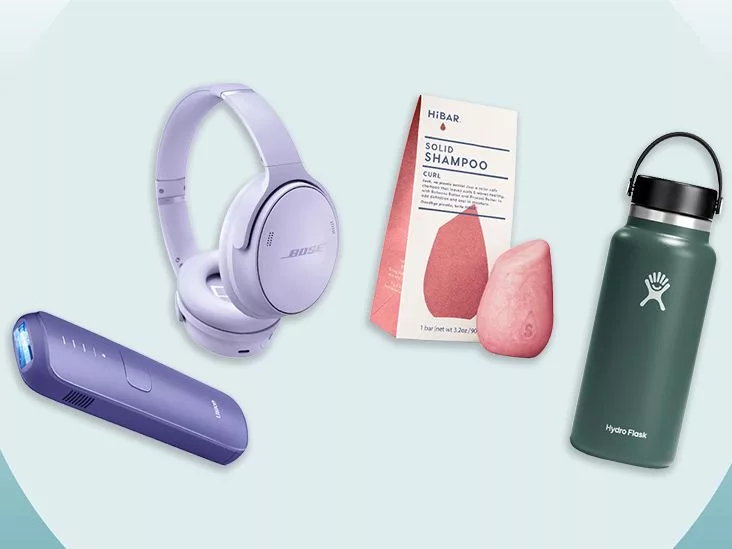

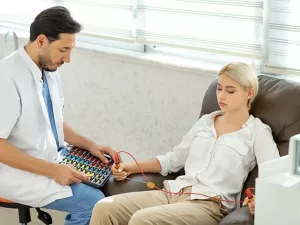









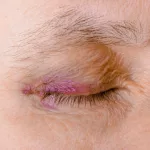





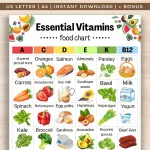


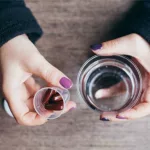


Leave a Reply
You must be logged in to post a comment.